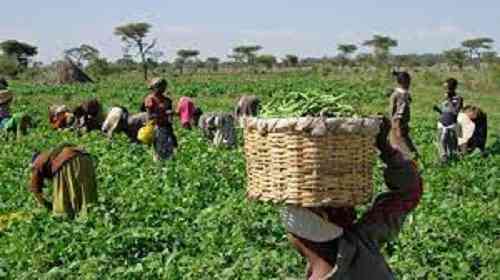
The deputy governor of Kano State, Dr. Nasiru Yusuf Gawuna, has said biotechnology and the media hold the key to strengthening Nigeria’s agricultural growth and development.
He stated this at the opening ceremony of a two-day retreat organised by the Open Forum on Agricultural Biotechnology (OFAB) and the National Biotechnology Development Agency (NABDA) for journalists, farmers and extension workers in Kano State.
He said Nigeria’s agricultural prowess was being consistently weakened by some age-long practices and factors like over reliance on rain-fed agriculture, smallholder land holding, poor planting material, low fertilizer application, and the weak agricultural extension system in the country.
Gawuna contended that Nigeria could leapfrog other countries to become major supplier of agricultural products with timely deployment and adoption of biotechnology and getting the media to communicate it rightly.
“Over the past 20 years, value-added per capita in agriculture has risen by less than 1 per cent annually. According to FAO, Nigeria has lost USD 10 billion in annual export opportunity from groundnut, palm oil, cocoa and cotton alone due to continuous decline in the production of those commodities,” he said.
Represented by his special assistant on agriculture, Mr Hafiz Muhammad, the deputy governor said while other countries were getting almost 10 tons of maize per hectare, in Nigeria the highest variety was giving about 4 tons. Also, when we are getting 13 tons for cassava, others are getting 40 tons; bean which is popularly called, ‘Naman Talaka’, and one of the most important legumes in the country leaves us with farmers producing 0.75 tons per hectare, he added.
He challenged the media to promote activities that would increase agricultural productivity, pointing out that for many decades, the nation had experienced a gradual decline in the farming population and static land size with an ever-increasing population that must be fed. “Meeting this demand looks almost impossible when viewed against our degraded land, poor yield and the emergence of new crop diseases and pest,” he further stated.
According to him, the media remain very strategic in national development and without the media understanding and buy-in of the use of modern and emerging technologies, efforts of government to enhance the living standard of the people will be in vain, adding no development had ever succeeded anywhere in the world without the media playing a vital role of leading its propagation and ensuring its acceptance.
In his remarks, the director-general of NABDA, Prof. Abdullahi Mustapha, reiterated the need for the media to play a crucial role in Nigeria’s efforts to boost food production especially the deployment of modern biotechnological tools in addressing agricultural productivity challenges.
He cautioned the media against giving space and airtime to anti-technology critics who he said were disrupting Nigeria’s progress in agriculture by advising farmers against using technology in enhancing their production.
Mustapha said that over the years, arm-chair critics had taken advantages of the media to propagate unscientific views and opinion that not only stalled our agricultural progress but also instilled fear in our farming communities.
“Northern Nigeria is one of the leading producers of agricultural products in the country, hence the just commercialized products of biotechnology (Cotton Bt. and PBR Cowpea) will go a long way in helping our farmers profit from their efforts; this means the media must be prepared to support them in their efforts to ensure a food secured Nigeria.
“Nigeria made history as the first country in Africa and the world at large to develop and release a cowpea variety that is resistant to the notorious pod borer, which has the capacity of destroying a whole beans farm and leaving the farmer helpless,” he said.
The NABDA boss pointed out that the agency, as a Federal Government agency responsible for promoting biotechnology activities, had been doing so positively in response to the government’s aspirations of ensuring national food security, job/wealth creation, affordable healthcare delivery and sustainable environment.
“It is also the duty of the agency to make biotechnology an engine of growth for socio-economic development of Nigeria by promoting, coordinating, and deploying cutting-edge biotechnology research & development, processes, and products for the socio-economic well-being of the nation,” he added.
Earlier, the OFAB country coordinator, Dr. Rose Gidado, said the training was aimed at providing accurate and up-to-date information about advances in the biotechnology sector since its adoption in Nigeria in order to ensure that the media are fully acquainted with facts and effectively disseminate same to the public.
The two-day training attracted journalists, scientists and policy makers from all over the country.


